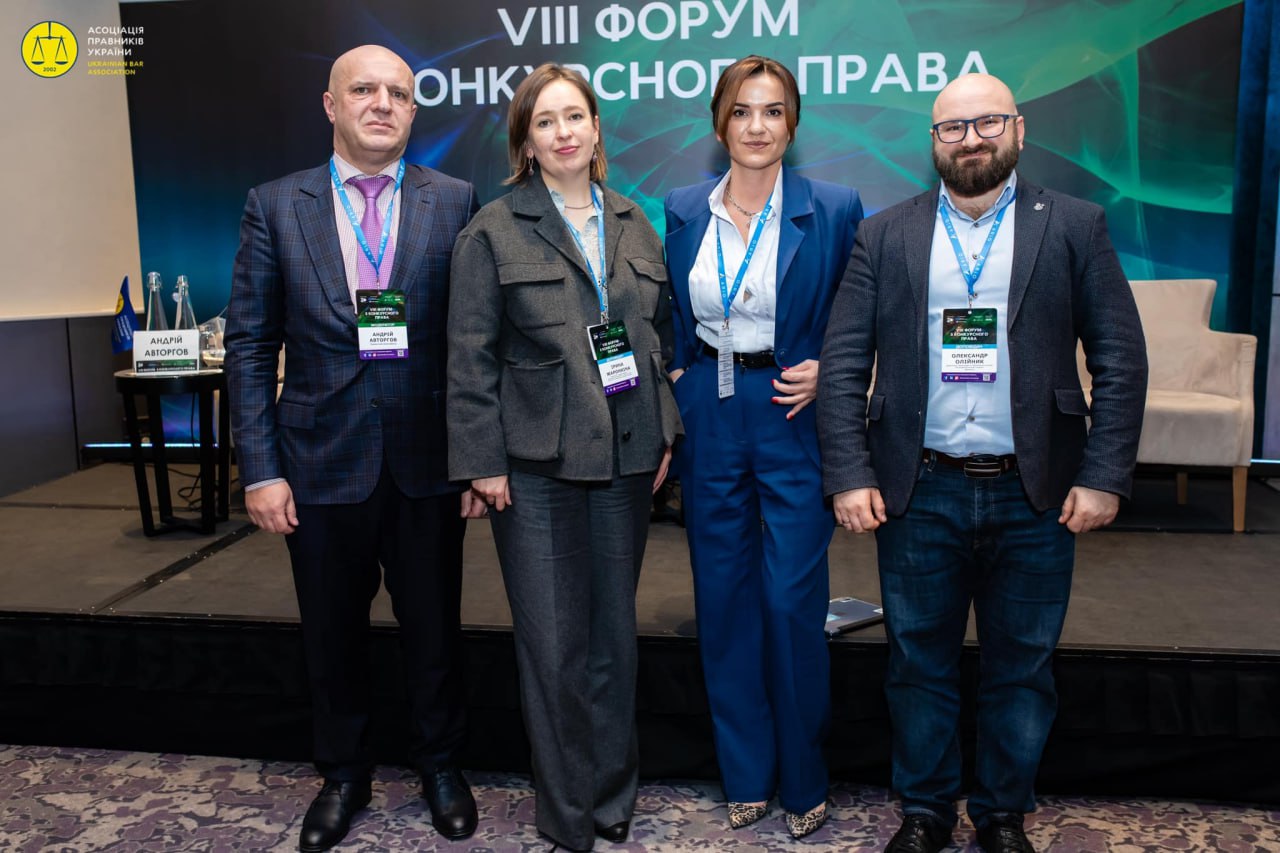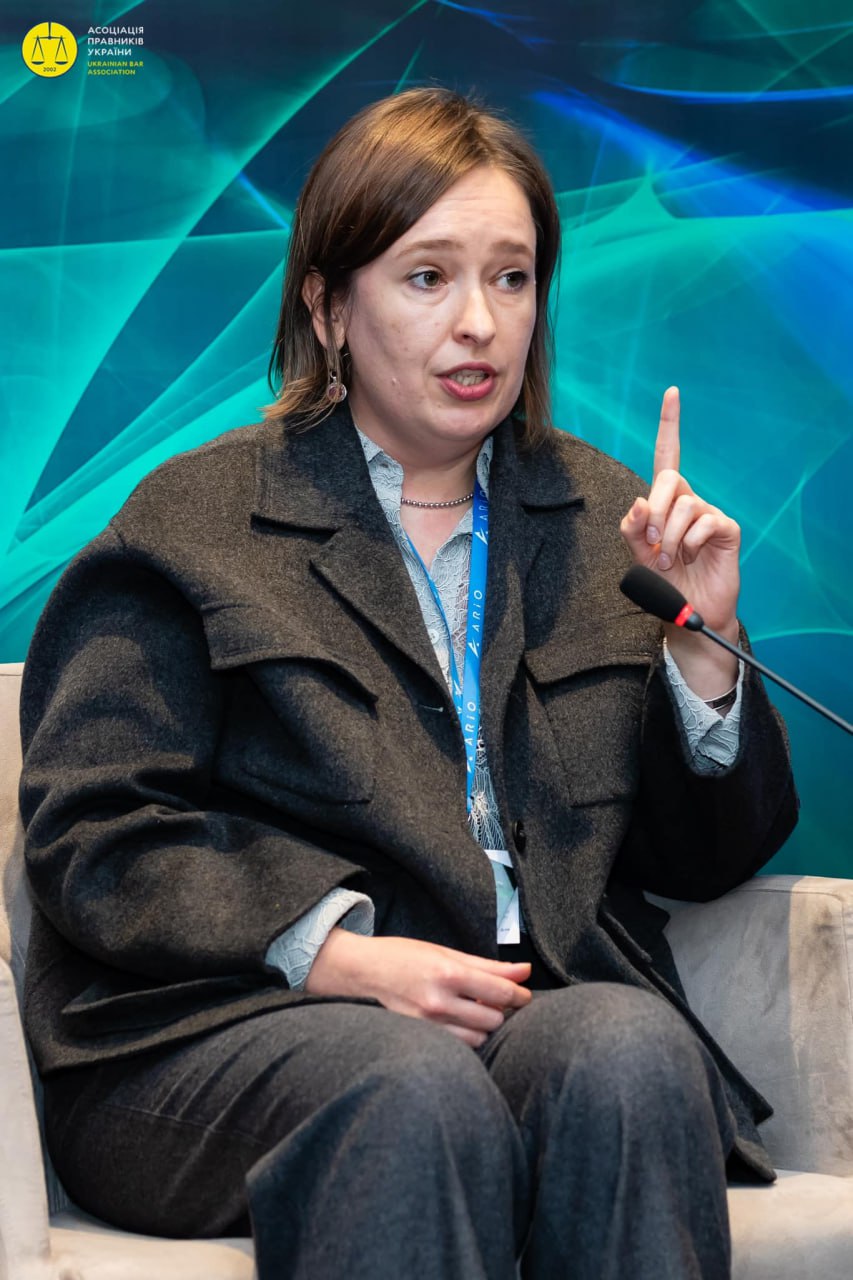EU Project Pravo-Justice Supported the VIII Forum on Competition Law

On October 26, with the support of the EU Project Pravo-Justice, the Ukrainian Bar Association held the VIII Forum on Competition Law. This event is an important platform for discussing current issues and challenges relating to insolvency by representatives of legislative and executive authorities, insolvency practitioners, lawyers, members of the banking community, and private enforcement officers.
The forum was held in the format of five sessions.
The first session of the event was dedicated to developments in the field of insolvency. Oleksii Movchan, Deputy Chairman of the Parliamentary Committee on Economic Development, spoke about the legislative track in this field. In particular, the MP explained the relevance of the recently registered draft law No. 10143 regarding the implementation of EU Directive 2019/1023 on the introduction of preventive restructuring procedures and outlined the time frame for the adoption of the bill. He emphasized that preventive restructuring could potentially help many enterprises avoid bankruptcy and preserve economic activity.
“Preventive restructuring is a much easier procedure compared to bankruptcy and allows avoiding the latter. It is beneficial for small and medium businesses, as it does not involve large expenses. It is enough for the debtor to submit a restructuring plan to the court, which the court approves or disapproves. The accrual of fines and interest is also suspended once the preventive restructuring applies,” said Oleksii Movchan.

Liudmyla Suhak, Deputy Minister of Justice for European Integration, spoke in more detail about the relevance of EU Directive 2019/1023 and its implementation into national legislation.
“The document systematically addresses the issue of restoring solvency within the EU, making it impossible to hop on “bankruptcy” tourism. The implementation of the directive is envisaged in the Memorandum on Macro-Financial Assistance for Ukraine for the amount of 18 billion EUR, which is provided by the EU” said Liudmyla Suhak.
Vladyslav Filatov, Director of the MoJ Department on Bankruptcy, outlined the prospects for the implementation of preventive restructuring procedures in Ukraine and the challenges that may be encountered.

The ideology of the EU Directive 2019/1023 and the key novelties suggested in the draft law No. 10143 were covered in his speech by Yulian Khorunzhyi, Senior Partner of Ario Law Firm, representative of the working group for the development of the said draft law.
“If the Directive and the draft law work as laid down in the ideology behind them, then most issues of solvency restoration will be addressed through preventive measures. A living and working business is more interesting to the State than a dead one. In the meantime, evidence suggests that any opening of bankruptcy proceedings in 90 % of cases is a one-way road towards liquidation,” explained Yulian Khorunzhyi.
The role of the court in ensuring a well-functioning bankruptcy institute during the war was presented in his intervention by Serhii Zhukov, judge-speaker of the bankruptcy chamber in the Cassation Economic Court under the Supreme Court.
Oleksandr Bondarchuk, Head of UNITA, developed on the challenges faced by the BTs community since the beginning of the full-scale invasion and its involvement in the formation of bankruptcy-related policy.
“Practice in bankruptcy cases affecting business operation” was the topic of the second session of the Forum. The discussion of some practical issues of bankruptcy procedures in wartime was at the center of attention of the speakers during the third session.
Iryna Zharonkina, Property Rights and Enforcement Component Lead, EU Project Pravo-Justice, was one of the key speakers at the fourth special session of the Forum, which was entitled “Harmonization of Ukrainian Insolvency Legislation with EU Law: Moving Towards It”.
“Insolvency procedures are considered by the European Commission as one of the key elements of financial and economic integration. That is why there is a need to harmonize national insolvency regimes," underlined in her speech Iryna Zharonkina.
She also presented the EU vision and approach to preventive restructuring procedures, and outlined the three main tasks of the draft EU Directive on the harmonization of certain aspects of insolvency legislation.
“It is about the efficiency of procedures, maximum return, and fair distribution of received funds among creditors,” said Iryna Zharonkina.

Within the framework of the final, fifth, session of the Forum, which was dedicated to the peculiarities of enforcement proceedings during the period of martial law, Iryna Zharonkina presented the results of a sociological study in the field of enforcement of court decisions, conducted at the request of EU Project Pravo-Justice.